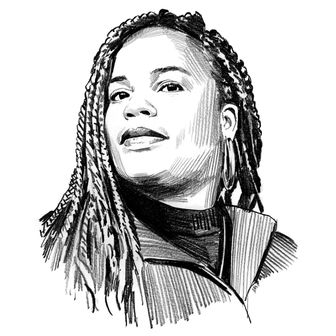
When Ben Sinclair and Katja Blichfeld — husband-and-wife-creators of the web series High Maintenance — first met, Blichfeld, a casting director, says that she “just wanted to follow [Ben] around with a camera” because she was so struck by his personality and energy. In a way, the show provides an outlet for that impulse: Sinclair, an actor and film editor, plays the pot dealer whose business connects each episode’s characters; the pair writes the episodes together.
High Maintenance touches on careers, friendships, sex, and relationships, along the way offering a subtle and unexpected look at modern gender roles. One of the standout episodes of the first cycle of High Maintenance was “Rachel,” which depicted a stay-at-home dad who spends his days “working” on a novel, smoking up, and cross-dressing in Rachel Comey clothing.
This week the show returns with three stellar new episodes (and some serious funding from Vimeo). The Cut talked to Blichfeld and Sinclair about what it’s like being a married couple who also creates together and the ways that the show draws on their own lives.
Katja, you’ve said that, in a way, Ben was your muse — which was interesting to me because the “beautiful woman inspires man to create art” dynamic is so much more familiar. What has is been like to have Ben at the center of High Maintenance?
Ben Sinclair: Actually, it was her idea to put me out of the center. That was a big point, because she didn’t want anyone to get overexposed. Because I get annoying.
Katja Blichfeld: [Laughs] That wasn’t my train of thought.
BS: No, but Katja is a master at not giving you too much of anything, and keeping less being more. She’s been the style guide in terms of not doing what everyone else tells you to do. She’s always drawing outside the lines because it’s interesting. In our relationship, too — like she asked me to marry her, pretty much.
So does that role switch extend beyond the working relationship?
KB: For the first half of our relationship, I was the breadwinner. I’m also a few years older than Ben. And I think I did play a more traditionally masculine role in our relationship in the beginning. It’s leveled out. But it’s like Ben says: I think I’m the restraint in the relationship, and he’s the excess. And then we can both be those things to a fault, for sure. I think there are times when I’m too reserved and there are times when he’s too much. But I think that’s why our relationship and our art works, because we meet in the middle and level each other out.
BS: But I think we really do. And you start to feel appreciation for it. It’s rocky at first, and there’s some feeling frustrated to not [be] able to do what is natural to do — or not necessarily not being able to do it, but having to edit yourself or temper yourself, in my case, or having to bolster yourself, in her case.
KB: I have to go outside of my comfort zone a lot because of Ben, and he has to be pulled down more than he’s comfortable with. So that happens.
BS: It’s working out. We’re working it out through these episodes, essentially.
Can you tell me more about that? Are there any specific episodes that really helped you work out your own issues?
BS: ”Rachel” is all about —
KB: Rachel, obviously. But I think in smaller, subtler ways, we do in other places. In “Trixie,” I think the relationship dynamic in that relationship is interesting to me, too, something we experience.
BS: Yeah, the “Rachel” episode — for the first half of our marriage, Katja was going out and being the breadwinner, and I was still figuring out my footing as an actor, as an editor. I tried to start a compost organization and really procrastinated on being a man, essentially. And Katja was very patient with me during those times, and very supportive of me. And it’s been nice in this time to level it all out, but we were capturing a lot of that feeling in that episode.
So is that the secret to a relationship? Having some sort of surrogate where issues are objectively scripted out?
KB: That, and our recovery is pretty quick.
BS: Our recovery is very fast.
KB: Yeah, that’s what saves us, I think. We don’t just stew in the juices forever.
BS: The fact that we have been able to be as mad at each other as we have been in the past, and still hang out —
KB: Yeah, we’ll fight and someone will leave the house and slam the door and the whole thing, but then by that night, we’re like, But I still wanna hang out with you.
BS: It could be called codependence. [Laughs.]
KB: It’s probably textbook codependency.
Are all the episodes secretly just about you guys?
BS: All the episodes are about us. The assholes are about us, too.
KB: Yeah, that’s us on our worst days.
This interview has been condensed and edited.





